Angiography cost in India for Indian Patients is between Rs.13320 to Rs.17760. Cost for International patients is between USD 270 to USD 330.
The total cost of the treatment depends on the diagnosis and facilities opted by the patient.Listing approximate price of Angiography and some related procedures. The prices may change depending upon the centers and condition of the patient.
| Treatment name | Cost range |
|---|---|
| Angiography | Rs.13320 to Rs.17760 |
| Coronary Angioplasty | Rs.177600 to Rs.236800 |
| Angioplasty and Stent Placement | Rs.164280 to Rs.219040 |
| Coronary Artery Surgery | Rs.222000 to Rs.296000 |
| Cerebral Angioplasty | Rs.199800 to Rs.266400 |
| PTCA-Percutaneous Transluminal | Rs.124320 to Rs.165760 |
Your doctor will recommend tests before angiography, including blood tests, MRI, ECG, chest X-ray, or cardiac CT. 10-15% of the total procedure cost is involved in medical tests related to the procedure. The treatment package contains the cost of the tests too.
The pharmacy and medicine bills are included in the package when the patient is in the hospital. On the other hand, if the patient buys medicines outside the hospital, they are not included in the package.
The patient has to rest for four to six hours in the hospital after the procedure is completed and can go home the same day. Sometimes the patient needs to stay in the hospital overnight. They also need follow-up tests, such as ECG, and blood tests, throughout the first year after the angiography.
The price varies across the cities. Tier 1 Cities are usualy more expencive thane tier 2 cities. The price for Angiography in different cities in India is approximately in the range of:
For patients planning to travel abroad it is useful to know the price in destinations popular with medical travellers. The price for Angiography in different countries is approximately:
Listing popular specialists:

Senior Consultant, 37 years of experience

<p class="rtejustify">The expertise of Dr. Sandhu lies in the following areas:</p> <ul> <li class="rtejustify">Cardiology and Cardio-thoracic Surgery</li> <li class="rtejustify">Primary angioplasty</li> <li class="rtejustify">Complex Coronary Interventions</li> <li class="rtejustify">Rotational Atherectomy</li> <li class="rtejustify">Transradial Interventions, Peripheral Interventions including Carotid & Renal,</li> <li class="rtejustify">Device Closure of Congenital Heart Defects</li> <li class="rtejustify">Pacemakers</li> <li class="rtejustify">Intra-aortic balloon pump (IABP)</li> <li class="rtejustify">Cardiac Resynchronisation Therapy Implants</li> </ul>

Senior Consultant, 25 years of experience

Cardiology, Complex Coronary Interventions, Transradial Interventions, Peripheral Interventions, Pacemakers, ICD’s Cardiac Resynchronisation Therapy Implants, Balloon Valvuloplasty
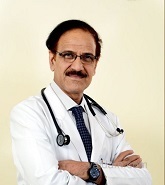
HOD, 39 years of experience

<p>Dr. Subhash Chandra Specializes in:</p> <ul> <li class="rtejustify">Heart Attacks Management</li> <li class="rtejustify">Angioplasty</li> <li class="rtejustify">Stenting & Device Implantation</li> <li class="rtejustify">Adult Congenital Birth Defects</li> <li class="rtejustify">Endovascular Interventions</li> </ul>
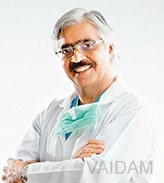
Consultant, 40 years of experience

<p>Dr. Ashok Seth Specializes in:</p> <ul> <li class="rtejustify">Angioplasty Techniques</li> <li class="rtejustify">Directional Atherectomy</li> <li class="rtejustify">Angioscopy</li> <li class="rtejustify">Thrombectomy Devices and Drug Eluting Stents</li> <li class="rtejustify">Use of Impella Heart Support Device</li> </ul>
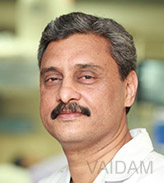
Consultant, 27 years of experience

Interventional Cardiology, Carotid Stenting, IVC Filter Placement, Peripheral Vascular Stenting, Venous Interventions

Chairman, 37 years of experience

<p>Dr. T. S. Kler Specializes in the following:</p> <ul> <li class="rtejustify">Coronary Artery Disease (CAD)</li> <li class="rtejustify">Heart Valve Disease</li> <li class="rtejustify">Aortic Aneurysm</li> <li class="rtejustify">Coronary Angioplasty & Stenting</li> <li class="rtejustify">Heart Failure</li> </ul>
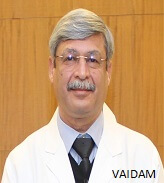
Consultant, 26 years of experience

Cardiology, Rotational Atherectomy (Rotablation), Pacemaker and AICD implantations and Cardiac Resynchronisation Therapy and Renal
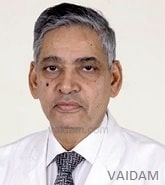
Chairman, 46 years of experience

<p>Dr. K. K. Talwar Specializes in the following:</p> <ul> <li class="rtejustify">Implantable Cardioverter & Defibrillator (ICD) Therapy</li> <li class="rtejustify">Radiofrequency Ablation</li> <li class="rtejustify">Cardiac Arrhythmia</li> <li class="rtejustify">Cardiac Resynchronization Therapy</li> <li class="rtejustify">Dyslipidemia</li> <li class="rtejustify">Non-Invasive Cardiology</li> </ul>

Senior Resident, 36 years of experience

Balloon Dilation of Mitral Valve and Pulmonary Valve, Coarctation of Aorta, Renal and Peripheral Arteries, Temporary and Permanent Pacemaker Implantations, Valvoplasty, Atrial Fibrillation
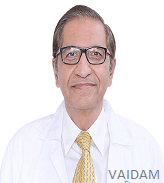
Director, 37 years of experience

Interventional Cardiology, Cardiothoracic Surgery, Cardiovascular Surgery, Electrophysiology

Principal Consultant, 17 years of experience

Cardiology, Electrophysiology

Consultant, 47 years of experience

<p>Dr. Robert Mao Specializes in the following:</p> <ul> <li class="rtejustify"> Aortic Aneurysm Surgery/Endovascular Repair</li> <li class="rtejustify">PCI (Percutaneous Coronary Interventions) </li> <li class="rtejustify">Heart Transplantation</li> <li class="rtejustify">Mitral/Heart Valve Replacement</li> </ul>

Consultant, 30 years of experience

Cardiology

Consultant, 38 years of experience

Chest Pain Treatment Clinical Cardiology Heart Conditions Angiogram Angioplasty and Stenting Minimally Invasive Cardiac Surgery Non-Invasive Cardiology Treatment for Cardioversion
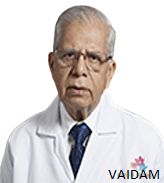
Director, 52 years of experience

Coronary Artery Disease (CAD) Heart Valve Disease Aortic Aneurysm Aortic Aneurysm Repair Coronary Angioplasty & Stenting Coronary Artery Bypass Grafting (CABG) Heart Failure Heart Transplant Heart Valve Repair Heart Valve Replacement Peripheral vascular disease Stenting Angioplasty
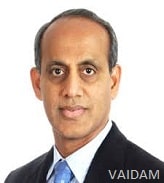
Consultant, 31 years of experience

Cardiac Catheterisation Mitral/Heart Valve Replacement Vascular Surgery Invasive Cardiac Cardiac Pacing Intra - Arterial Thrombolysis Balloon Mitral Valvuloplasty Radial Approach Angiography Patent Ductus Artriosus Device Closure Mitral/Heart Valve Replacement Invasive Cardiac Cardiac Pacing Pediatric cardiac surgery Aorta Adult Cardiac Surgery Abdominal Aorta Infrarenal Abdominal Aorta Suprarenal Aortic Arch Aortic Root Ascending Aorta Descending Thoracic Aorta Thoracic Aorta Thoracoabdominal Aortic Surgery Aortoiliac Disease Abdominal Aorta Intensive Care Ventilator

Senior Consultant, 31 years of experience

Primary angioplasty Permanent Pacemaker Implantation CRT for Heart Failure Peripheral Angioplasty Renal Angioplasty Stent Graft (for aneurysm) FFR IVC filter implantation Heart transplantation

Consultant, 44 years of experience

Peripheral Vascular Disease Patent Ductus Artriosus Device Closure Coronary Angiogram Radial Approach Angiography Balloon Mitral Valvuloplasty Pacemaker Implantation Cardiac Catheterisation Acute Aortic Dissection Primary Angioplasty ASD / VSD Device Closure Implantable Cardioverter-Defibrillators (Icds) Cardioversion Carotid Angioplasty And Stenting Peripheral Angioplasty Coronary Angioplasty / Bypass Surgery

Consultant, 37 years of experience

Implantable Cardioverter Defibrillator Transesophageal Echocardiogram Permanent Pacemaker Balloon Mitral Valvotomy Arrhythmia Treatments TAVI Coronary Angiogram Primary Angioplasty Permanent Pacemaker Cardiac Resynchronization Therapy Micra Insertion Heart failure therapies like Impella IABP TAVI. PBMV & Structural Interventions ASD VSP PDA Device closures Endovascular interventions like Aaneurysm Repair Angioplasty and /Stenting Right and Left Heart catheterization Transcatheter Aortic Valve Replacement (TAVR) Angioplasty Device Closure Endovascular Stent Grafting Peripheral Angiogram/ Angioplasty Carotid Stenting

Consultant, 17 years of experience

ASD Device Closure Pacemaker Implantation Implantable Cardioverter-Defibrillators (Icds) Radial Approach Angiography Balloon Mitral Valvuloplasty Cardioversion Angioplasty Cardiac Catheterisation Carotid Angioplasty And Stenting Chest pain Interventional Cardiology Angiogram
Our Services for Angiography in India
Transparent - Professional - Without Hassles
Angiography is an X-ray procedure that examines blood arteries. Because blood vessels are difficult to see on a standard X-ray, a special dye must be injected into your blood first. This draws attention to your blood vessels, making it easier for your doctor to spot any abnormalities. Angiograms are the X-ray pictures generated during angiography.
Angiography is a procedure that examines the condition of your blood arteries and the flow of blood through them. It can aid in the diagnosis or investigation of a variety of blood vessel issues, including:
Atherosclerosis is a narrowing of the arteries that increases the risk of a stroke or heart attack.
Atherosclerosis of the peripheral arteries – Leg muscles have a lower blood supply.
An aneurysm is a protrusion in the brain.
It can provide pictures of blood vessels in a variety of organs. As a result, angiograms are frequently used to assist doctors in diagnosing disorders affecting the heart, brain, arms, and legs. Angiograms can be used to identify anomalies in the blood vessels, such as weakening blood vessels, plaque deposits, and blood clots.
Angiography comes in a variety of forms, depending on which area of the body is being examined.
The following are examples of common types:
Coronary Angiography - a procedure that examines the heart and blood arteries nearby.
angiography of the brain — a procedure that examines the blood arteries in and around the brain.
Pulmonary Angiography - a procedure that examines the blood arteries that supply the lungs.
Renal Angiography is a procedure that examines the blood arteries that feed the kidneys.
A catheter is a long, thin, flexible tube that is placed into an artery and carefully directed to the location to be studied. When this is done, you may feel some pressing and tugging, but it should not be uncomfortable.
Angiography takes around 30 minutes to 2 hours to complete.
Eight hours before the angiography, don't eat or drink anything. Make arrangements for someone to drive you home. Because you may feel dizzy or light-headed for the first 24 hours following your cardiac angiography, you should have someone remain with you the night after your test.
Angiograms are performed in the radiology or X-ray departments of hospitals.
In preparation for the examination:
You'll be awake most of the time, although you could be given a sedative to help you unwind.
A small cut (incision) is made across one of your arteries, generally around your groin or wrist, while you lie on an X-ray table. A local anaesthetic is given to numb the region where the cut is made.
A tiny flexible tube (catheter) is introduced into the artery and gently directed to the location to be studied (such as the heart)
After injecting a dye (contrast medium) into the catheter, a series of X-rays are obtained as the dye passes through your blood arteries.
You could feel weary, and the incision site will probably be sore for up to a week. Bruising might persist up to two weeks.
After an angiogram, your groin or arm may have a bruise and feel sore for a day or two.
Patients need 8-12 hours of bed rest following coronary angioplasty, according to researchers' clinical experience. The cornerstone of related research throughout the world is determining the best period for bed rest following angioplasty and removing the arterial sheet.
Your groin or arm may bruise and be uncomfortable for a day or two after an angiography. For many days, you can do light tasks around the house but nothing hard. Your doctor may give you precise advice about when you may resume routine activities like driving and returning to work.






NABH Certified Healthcare Discovery Platform
Vaidam is NABH certified healthcare discovery platform that will connect you to top-notch medical experts, hospitals, wellness options, and trusted travel partners to help identify and make the right healthcare choices.

Researched & Personalized Treatment Plan - Under One Roof
You can search for the best hospitals, read about them, view photographs of the facilities at the hospitals and the places at which the hospitals are located, and check the cost of treatment.

Quality Treatment Within Your Budget
As soon as you post an enquiry, the patient relation team will collect details from you, share them with the doctors and hospitals on Vaidam's panel, and get a personalized treatment plan. We research to get quality treatment within your budget.

Treatment to Travel
Vaidam concierge assists patients, to get medical Visa, the best airline fares and arrangements for your stay. Our concierge also helps you with daily travel, language, and food concerns. Vaidam does everything to be your perfect host. All of Vaidam’s services are free of cost to patients.

International Reach
Vaidam Health has network in 15+ countries, which includes India, Turkey, UAE, Germany, South Korea, Thailand, Malaysia, Spain.
Note: Vaidam Health does not provide medical advice, diagnosis or treatment. The services and information offered on www.vaidam.com are intended solely for informational purposes and cannot replace the professional consultation or treatment by a physician. Vaidam Health discourages copying, cloning of its webpages and its content and it will follow the legal procedures to protect its intellectual property